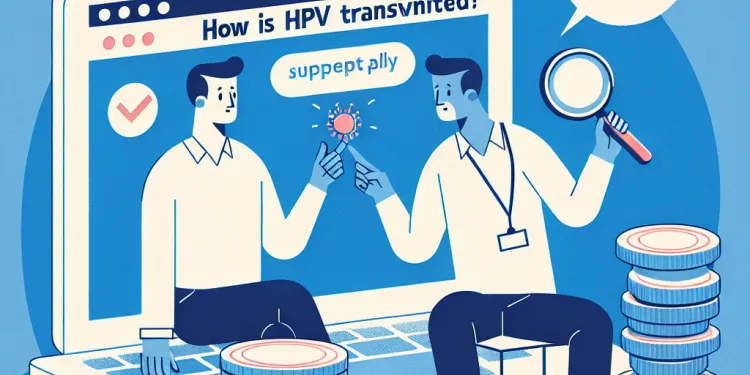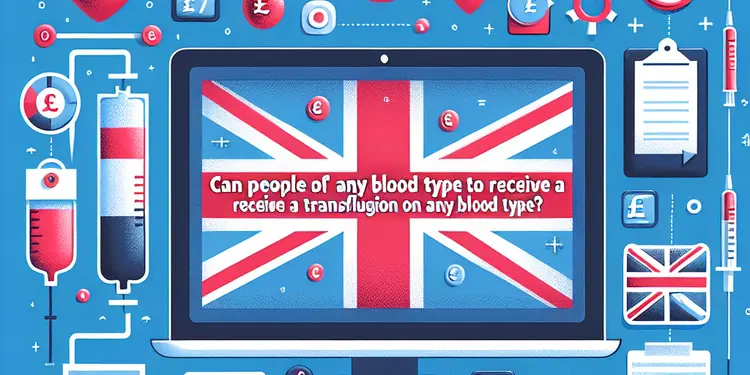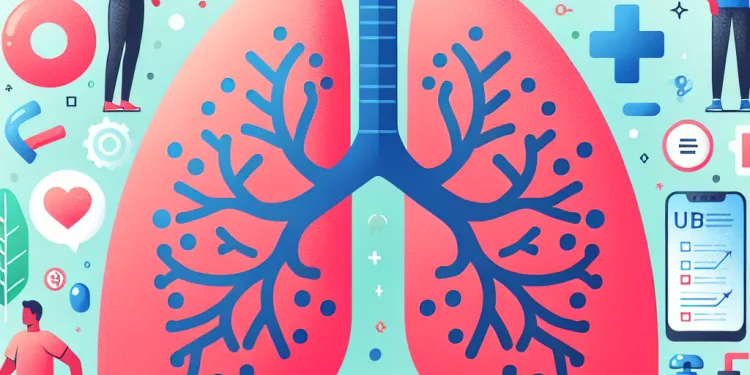
Find Help
More Items From Ergsy search
-

Are there symptoms of an HPV infection?
Relevance: 100%
-

What is the HPV Virus?
Relevance: 100%
-

How is HPV transmitted?
Relevance: 99%
-

How common is HPV?
Relevance: 97%
-

Is HPV testing available?
Relevance: 97%
-

How many types of HPV are there?
Relevance: 97%
-

Can HPV lead to cancer?
Relevance: 96%
-

Can HPV go away on its own?
Relevance: 95%
-

HPV - My Story | NHS
Relevance: 95%
-

Can HPV be treated?
Relevance: 94%
-

Do men need the HPV vaccine?
Relevance: 94%
-

How can HPV be prevented?
Relevance: 93%
-

What is the year 8 HPV vaccine? | NHS
Relevance: 92%
-

Can HPV affect both men and women?
Relevance: 91%
-

What health problems can HPV cause?
Relevance: 91%
-

What is the link between HPV and cervical cancer?
Relevance: 90%
-

Who should get the HPV vaccine?
Relevance: 89%
-

Can using condoms fully protect against HPV?
Relevance: 83%
-

Surge in HPV Vaccination Rates Among Young Women in the UK
Relevance: 81%
-

What age group is most at risk for HPV?
Relevance: 80%
-

Is there a vaccine for HPV?
Relevance: 75%
-

What are the different types of vaccines?
Relevance: 53%
-

Understanding Your Sexual Health - Genital Warts
Relevance: 46%
-

What is the difference between type 1 and type 2 diabetes?
Relevance: 46%
-

Type 1 Diabetes supporting adults to manage Type 1 diabetes
Relevance: 43%
-

Is Type 2 Diabetes hereditary?
Relevance: 43%
-

What is type 1 diabetes?
Relevance: 43%
-

What is type 1 diabetes?
Relevance: 42%
-

Are there different types of ADHD?
Relevance: 42%
-

Is Ozempic suitable for type 1 diabetes?
Relevance: 40%
-

Is there a genetic predisposition to type 1 diabetes?
Relevance: 40%
-

Can people of any blood type receive a transfusion of any blood type?
Relevance: 40%
-

Prolapse Types and Tips
Relevance: 40%
-

Can Type 2 Diabetes go away?
Relevance: 40%
-

What causes Type 2 Diabetes?
Relevance: 40%
-

Vaginal Cancer
Relevance: 40%
-

Can Type 2 Diabetes be prevented?
Relevance: 40%
-

What are the symptoms of Type 2 Diabetes?
Relevance: 40%
-

Are there different types of asthma?
Relevance: 39%
-

How to manage type 2 diabetes
Relevance: 39%
Understanding Human Papillomavirus (HPV)
Human Papillomavirus (HPV) is a highly prevalent virus that infects skin and mucous membranes. It is one of the most common sexually transmitted infections globally, with a significant impact on public health. Understanding the different types of HPV and their implications is crucial for effective prevention and management.
How Many Types of HPV Are There?
There are more than 200 distinct types of Human Papillomavirus (HPV). These types are categorized based on their genetic sequences and the specific tissues they infect. They are broadly divided into two main groups: low-risk HPV types and high-risk HPV types. Each group has specific characteristics and potential health impacts.
Low-Risk HPV Types
Low-risk HPV types, such as HPV 6 and HPV 11, are known for causing benign conditions. They are most commonly associated with non-cancerous lesions like genital warts. These types of HPV do not cause cancer but can lead to uncomfortable and sometimes recurrent conditions. Vaccines such as the Gardasil vaccine have proven effective in preventing infections caused by these low-risk types.
High-Risk HPV Types
High-risk HPV types are a significant concern because they are associated with the development of cancer. Approximately 14 types of HPV are classified as high-risk, with HPV 16 and HPV 18 being the most prevalent. These high-risk types have the potential to cause various cancers, including cervical, anal, oropharyngeal, and other genital cancers. In the UK, routine cervical screening programmes and HPV vaccination are critical strategies used to help reduce the incidence of cervical cancer linked to these high-risk types.
Diagnosis and Prevention
Routine screening is vital for early detection and prevention of HPV-related health issues. In the UK, cervical screening programmes play an essential role in combating cervical cancer. By identifying pre-cancerous changes in cervical cells caused by HPV, these screenings provide an opportunity for early treatment and prevention of cancer progression. Vaccination is another key preventive measure. The HPV vaccine, widely available in the UK, targets the most common high-risk and low-risk HPV types, efficiently reducing the risk of HPV-related conditions.
Conclusion
Overall, the diversity of HPV types requires tailored approaches for prevention and treatment. Understanding the distinction between low-risk and high-risk types informs both public health strategies and individual healthcare decisions. Education on HPV, along with widespread vaccination and regular screening, can significantly diminish the health burden posed by this virus in the UK and worldwide.
Understanding Human Papillomavirus (HPV)
Human Papillomavirus, or HPV, is a common virus. It affects the skin and moist areas of the body. It spreads easily through skin contact, often through sex. Knowing about HPV helps us prevent and treat it better.
How Many Types of HPV Are There?
There are over 200 types of HPV. These types are put into two groups: low-risk and high-risk. Each group affects the body differently.
Low-Risk HPV Types
Low-risk HPV types, like HPV 6 and HPV 11, usually cause warts. These warts can appear on the genitals. These types do not cause cancer. Vaccines like Gardasil can prevent these infections.
High-Risk HPV Types
High-risk HPV types can cause cancer. About 14 types of HPV are high-risk. The most common are HPV 16 and HPV 18. They can cause cancers like cervical and throat cancer. In the UK, cervical screening and HPV vaccines help prevent these cancers.
Diagnosis and Prevention
Regular health checks are important. In the UK, screenings help find early signs of cervical cancer. Getting the HPV vaccine can also protect you. The vaccine works against common HPV types that cause health problems.
Conclusion
There are many types of HPV, so we need different ways to handle them. Knowing the difference between low-risk and high-risk types helps doctors and people make good health choices. Learning about HPV, getting vaccinated, and having regular check-ups can help keep everyone healthy.
Frequently Asked Questions
Useful Links
This website offers general information and is not a substitute for professional advice.
Always seek guidance from qualified professionals.
If you have any medical concerns or need urgent help, contact a healthcare professional or emergency services immediately.
- Ergsy carfully checks the information in the videos we provide here.
- Videos shown by Youtube after a video has completed, have NOT been reviewed by ERGSY.
- To view, click the arrow in centre of video.
- Most of the videos you find here will have subtitles and/or closed captions available.
- You may need to turn these on, and choose your preferred language.
- Go to the video you'd like to watch.
- If closed captions (CC) are available, settings will be visible on the bottom right of the video player.
- To turn on Captions, click settings .
- To turn off Captions, click settings again.
More Items From Ergsy search
-

Are there symptoms of an HPV infection?
Relevance: 100%
-

What is the HPV Virus?
Relevance: 100%
-

How is HPV transmitted?
Relevance: 99%
-

How common is HPV?
Relevance: 97%
-

Is HPV testing available?
Relevance: 97%
-

How many types of HPV are there?
Relevance: 97%
-

Can HPV lead to cancer?
Relevance: 96%
-

Can HPV go away on its own?
Relevance: 95%
-

HPV - My Story | NHS
Relevance: 95%
-

Can HPV be treated?
Relevance: 94%
-

Do men need the HPV vaccine?
Relevance: 94%
-

How can HPV be prevented?
Relevance: 93%
-

What is the year 8 HPV vaccine? | NHS
Relevance: 92%
-

Can HPV affect both men and women?
Relevance: 91%
-

What health problems can HPV cause?
Relevance: 91%
-

What is the link between HPV and cervical cancer?
Relevance: 90%
-

Who should get the HPV vaccine?
Relevance: 89%
-

Can using condoms fully protect against HPV?
Relevance: 83%
-

Surge in HPV Vaccination Rates Among Young Women in the UK
Relevance: 81%
-

What age group is most at risk for HPV?
Relevance: 80%
-

Is there a vaccine for HPV?
Relevance: 75%
-

What are the different types of vaccines?
Relevance: 53%
-

Understanding Your Sexual Health - Genital Warts
Relevance: 46%
-

What is the difference between type 1 and type 2 diabetes?
Relevance: 46%
-

Type 1 Diabetes supporting adults to manage Type 1 diabetes
Relevance: 43%
-

Is Type 2 Diabetes hereditary?
Relevance: 43%
-

What is type 1 diabetes?
Relevance: 43%
-

What is type 1 diabetes?
Relevance: 42%
-

Are there different types of ADHD?
Relevance: 42%
-

Is Ozempic suitable for type 1 diabetes?
Relevance: 40%
-

Is there a genetic predisposition to type 1 diabetes?
Relevance: 40%
-

Can people of any blood type receive a transfusion of any blood type?
Relevance: 40%
-

Prolapse Types and Tips
Relevance: 40%
-

Can Type 2 Diabetes go away?
Relevance: 40%
-

What causes Type 2 Diabetes?
Relevance: 40%
-

Vaginal Cancer
Relevance: 40%
-

Can Type 2 Diabetes be prevented?
Relevance: 40%
-

What are the symptoms of Type 2 Diabetes?
Relevance: 40%
-

Are there different types of asthma?
Relevance: 39%
-

How to manage type 2 diabetes
Relevance: 39%


